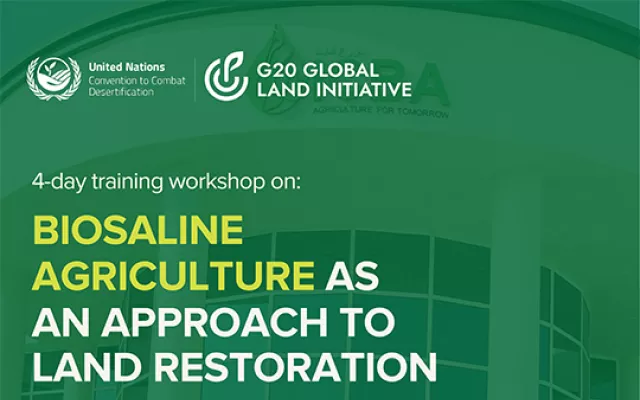Introduction of value chains for stress-resilient crops to support the development of sustainable rural communities in Kasserine, Tunisia
Kasserine Governorate of Tunisia has a population of approximately 430,000 and has the lowest human development indicators in the country with more than 25% of the workforce unemployed. Kasserine Governorate is an example of a systematically marginalised, “victimized” region, which has resulted in an excluded population, unable to realize or defend their most basic economic and social rights, such as education, health and work. Soula in the Majel Abu Abbas region is one of the most arid and marginalized areas in the governorate. The only source of income in Soula is the seasonal collection of halfa grass for the local cellulose factory which fluctuates according to demand, making it a vulnerable source of income. Agriculture, therefore, occupies an important place in the economy of the region, with women actively participating in agriculture. But its development remains weak due to land degradation and water scarcity. Due to urban migration of men, women-headed households are more likely to be found among agricultural households.
Women’s participation in the labour market is very low in Kasserine Governorate and by promoting development of the agro-processing sector, the governorate could increase local job opportunities for women in rural areas. The project will target the Soula area in the region of Majel Abu Abbas in Kasserine Governorate and will be implemented over 2 phases. Phase 1 will introduce stress-resilient crop genotypes (e.g. quinoa, pearl millet and sorghum) and high-value fruit trees like pistachio to 100 women farmers in Kasserine Governorate. Phase 2 will scale up the developed value chain model in other marginalized rural communities of Kasserine Governorate. Around 900 women and their families will be targeted. Drawing from lessons learned from previous integrated rural development initiatives, such as the Earth Institute, Millennium Village Project (MVP) and the Islamic Solidarity Fund for Development (ISFD), Sustainable Villages Program, the project will build the skills of the women farmers through provision of training and tools, and develop a sustainable value chain model by training and establishing linkages with other value chain actors.
SDG 1: No Poverty
SDG 2: Zero Hunger
SDG 5: Gender Equality
SDG 8: Decent Work and Economic Growth
SDG 10: Reduced Inequalities, and SDG 13: Climate Action
Dr. Henda Mahmoudi (hmj@biosaline.org.ae)
Local authorities, women’s associations and farmers’ organizations, as well as relevant private sector actors.










